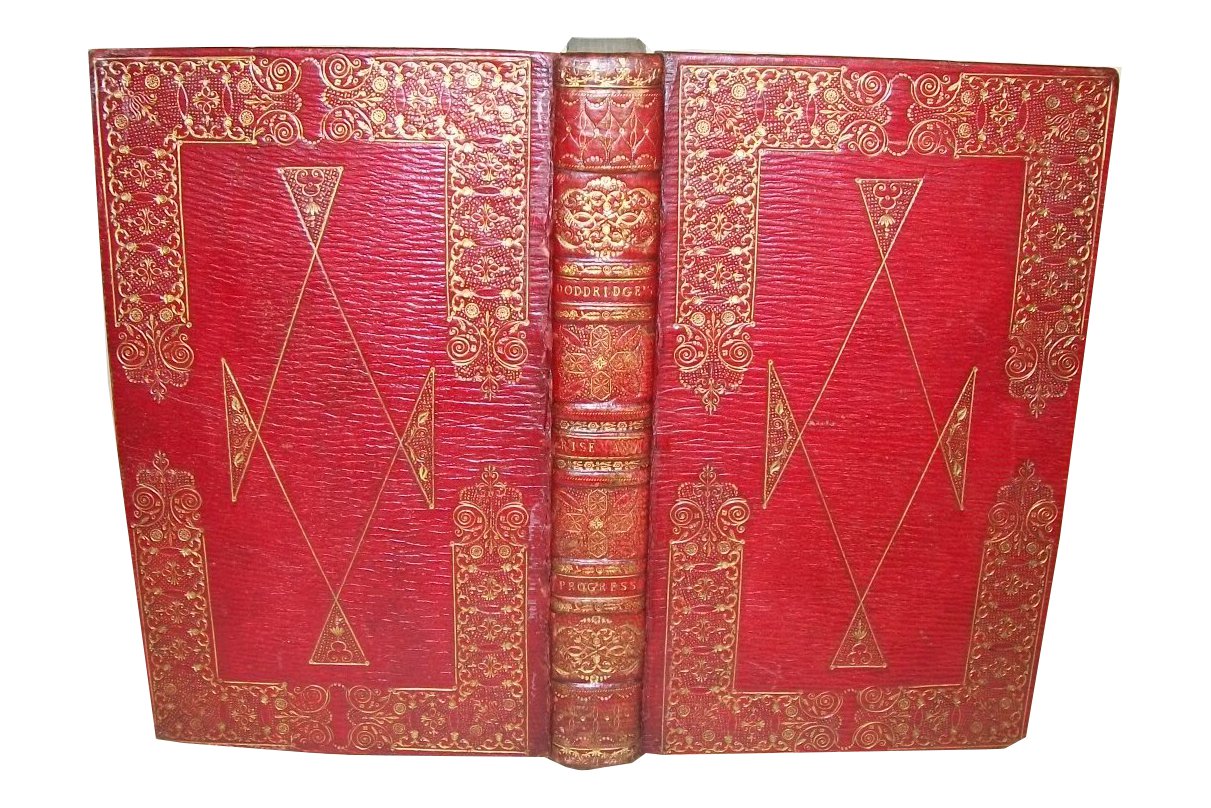Doddridge, P.. The Rise and Progress of Religion in the Soul. London: F.C. And J. Rivington et al, 1810. Reprint. 8vo. Full Morocco. Good+ xxiv, 456pp. Contemporary full straight-grain morocco, raised bands, spine in six panels, author and title between and on raised bands, panels one and six with gilt pointille semi-circles to top and bottom, with roundels joined by thin roll making up central lozenges, panels two and five with gilt centrepiece made up of small flower, feather and volute tools, and panels three and four with small central gilt quadrilobe, surrounded by four hexagons containing another small quadrilobe and pointille ovals, covers with broken border design, with volutes to centres and ends, enclosing four triangles joined by a single gilt fillet forming a central lozenge. Edges with small flower roll to start and centre, with pointille decoration to corners, broken roll to inner edges, a.e.g. Slightly rubbed to extremities, especially outer joints. Internally lightly browned, some small spots of foxing, mainly to margins, generally fairly clean. Doddridge, Philip (1702-1751), Independent minister and writer … Doddridge’s most influential publications in his lifetime were The Rise and Progress of Religion in the Soul (1745) … The subtitle of The Rise and Progress indicates that it is ‘a Course of Serious and Practical Addresses, suited to Persons of every Character and Circumstance: with a Devout Meditation or Prayer added to each Chapter’. The dedication to Watts describes it as ‘a book, which owes its existence to your request, its copiousness to your plan, and much of its perspicuity to your review’ (Works, 1.211). Watts had originally envisaged ‘a small Book for the Poor, like Baxters Call to the Unconverted’, and he did his best, after trying out the manuscript on his servants, to make Doddridge ‘reduce the Language into easier Words and plainer Periods’ (10 April 1744, Nuttall, Calendar, no. 963). Nevertheless Watts was certain of its usefulness: ‘I am not ashamed, by what I have read, to recommend it as the best treatise on practical religion which is to be found in our language’ (13 Sept 1744, Correspondence, 4.356-7). Doddridge partly attributed Dr James Stonhouse’s conversion to it. Both this work and the next were widely distributed and translated into Dutch, French, and German” (Oxford DNB)
